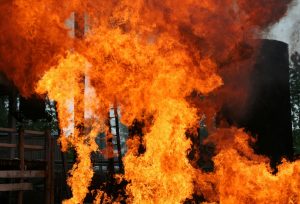
In order for you to get compensation for injuries due to a fire in which you are involved, you have to be able to prove that another party did something or did not do something that led to the fire. When people do not take appropriate precautions or reasonable action, and that leads to an injury, this is what constitutes negligence. In order to get compensation for your injuries or property damage, you have to be able to prove negligence.
One of the elements of determining fault or negligence is the reasonableness test. Would it be reasonable for another person to take the same actions or inactions that led to this fire? For example, if the fire was caused by a short in the wiring of your apartment, and a reasonable person could not have known about the wiring problem, this would mean that the owner of the building was not negligent, and you have no personal injury case against them. Yet, if the fire was caused by a short in an outlet that the building owner knew didn’t work properly, then it could be argued that a reasonable person would have had the outlet checked by an electrician, and they would be considered negligent and at fault.
If you have recently been in a fire and sustained injuries or property damage, you may be entitled to compensation. If you aren’t sure whether or not someone else was responsible for the fire through negligence, contact us for a consultation, and we can examine the facts and determine if you have a viable case.